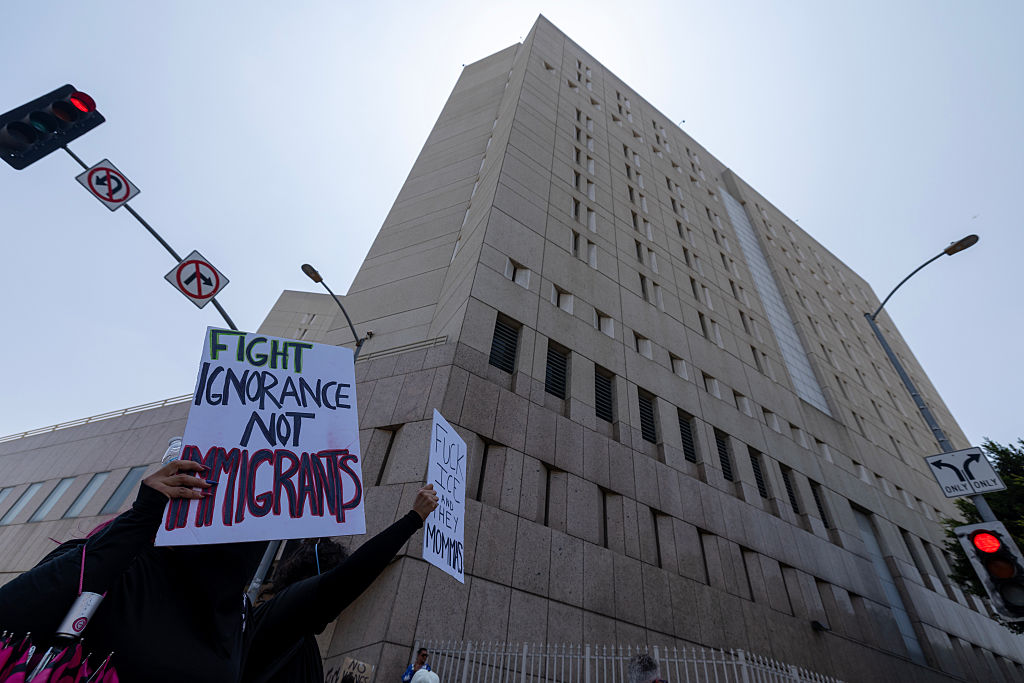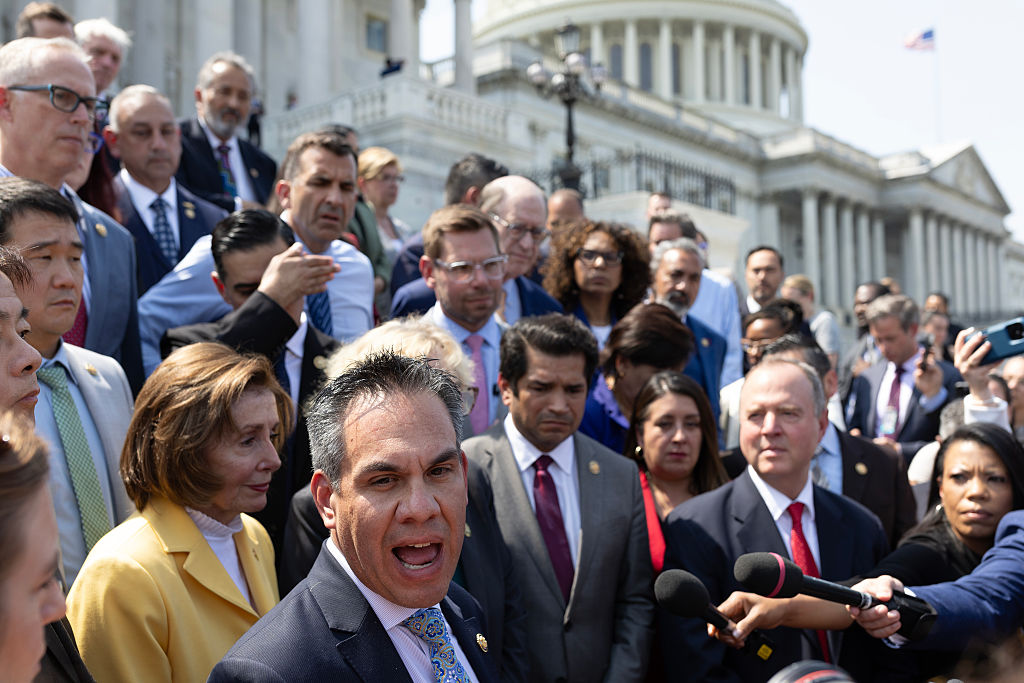Experts Sound The Alarm On New Rules For ICE Center Visits
Experts Sound The Alarm On New Rules For ICE Detention Center Visits

Legal and oversight experts are raising serious concerns after the Department of Homeland Security (DHS) rolled out new rules, limiting access for members of Congress to inspect and view immigration detention and processing facilities operated by U.S. Immigration and Customs Enforcement (ICE).
According to the new guidance now imposed by the agency after being issued earlier this month, members of Congress must provide at least 72 hours’ notice before visiting ICE facilities. The new rules also give the agency “discretion” to cancel or deny visits due to “operational concerns” or safety risks; intensifying conflict between immigration officials and Democratic lawmakers over the separation of powers. The decision marks a significant departure from longstanding federal law, which explicitly grants members of Congress the legal right to make unannounced oversight visits to immigration facilities that “detain or otherwise house aliens.” Under the current law, lawmakers are not required to provide “prior notice of the intent to enter a facility” to conduct oversight, though members of their staff must request a visit at least 24 hours in advance.
Rep. Bennie Thompson (D-Miss.), ranking member of the House Homeland Security Committee, strongly disagreed with that characterization. “This unlawful policy is a smokescreen to deny Member visits to ICE offices across the country, which are holding migrants — and sometimes even U.S. citizens — for days at a time,” he said. “They are, therefore, facilities and are subject to oversight and inspection at any time. DHS pretending otherwise is simply their latest lie.”
Previous DHS language for lawmaker visitations said, “ICE will comply with the law and accommodate Members seeking to visit/tour an ICE detention facility for the purpose of conducting oversight.”
However, ICE’s updated policy distinguishes between detention facilities and field offices, asserting that the latter are not subject to these oversight provisions, even though immigrants are often held in field offices for extended periods.
“The agency is attempting to draw a false distinction,” said Rep. Gomez, who posted a video outside the Metropolitan Detention Center pointing to the building’s signage. “It says Metropolitan Detention Center right here in big, bold letters, but they say this is a processing center. So I smell bull—.”
Oversight experts say ICE’s new approach is unprecedented—a potentially unlawful shift from past practices.
“Denying members of Congress access to facilities is a direct assault on our system of checks and balances,” James Townsend, director of the Carl Levin Center for Oversight and Democracy at Wayne State University, said. “What members of Congress are trying to do now is to be part of a proud bipartisan tradition of what we like to call oversight by showing up.”
The consequences of these access restrictions have already played out on the ground. Earlier this month, Rep. Norma Torres (D-Calif.) was among several lawmakers denied entry to the Roybal Federal Building during an unannounced oversight visit. Torres later required emergency room treatment for respiratory issues after ICE deployed chemical agents during what she described as a small, peaceful protest.
Torres has since attempted to reschedule her visit, but ICE canceled her appointment due to protest activity and did not respond to follow-up requests. Several lawmakers, including Reps. Judy Chu (D-Calif.) and Gomez have also been denied entry in subsequent attempts.
ICE maintains that its policies are necessary to protect facility operations. Tricia McLaughlin, assistant secretary for Homeland Security, said in a statement to The Times that requests for visits are needed because “ICE law enforcement has seen a surge in assaults, disruptions, and obstructions to enforcement, including by politicians themselves.”
She added that requests for visits should be made with enough time — “a week is sufficient” — to not interfere with the president’s authority under Article II of the Constitution to oversee executive branch functions.
The new policy also prohibits any verbal or physical interaction between visitors and detainees without prior approval, warning that violations could lead to tours being cut short or canceled altogether.

Despite the pushback, some lawmakers have managed to gain access. Last week, Rep. Pete Aguilar (D-Calif.) and a group of California Democrats were granted entry to the Adelanto ICE Processing Facility, which is now at full capacity. Chu said detainees they spoke with were not criminals and described “inhumane conditions”—including inadequate food, poor hygiene, and lack of access to legal representation.
Sen. Alex Padilla (D-Calif.), who was forcibly removed and handcuffed during a recent confrontation with DHS Secretary Kristi Noem, said during his emotional floor speech, “The Trump administration has done everything in their power but to provide transparency to the American people about their mission in Los Angeles.”
Members of Congress are now considering legislative and legal remedies. “Federal officials should be fined each time they deny oversight access to members of Congress,” said Rep. Gomez. “We’re also exploring legal action to compel access. When you have an administration that is operating outside the bounds of the law, they’re basically saying, ‘What recourse do you have? Can you force us?’ You have to put some real teeth into it.”
As the standoff continues, one thing is certain: the battle over access is about more than scheduling conflicts; it’s about the limits of executive power and the right of the public’s elected representatives to conduct oversight.
SEE ALSO:
ICE Agents Claim Assaults Are Reasons For Masks, But That’s A Lie
Palestinian Activist Mahmoud Khalil Freed From ICE Custody In Louisiana








